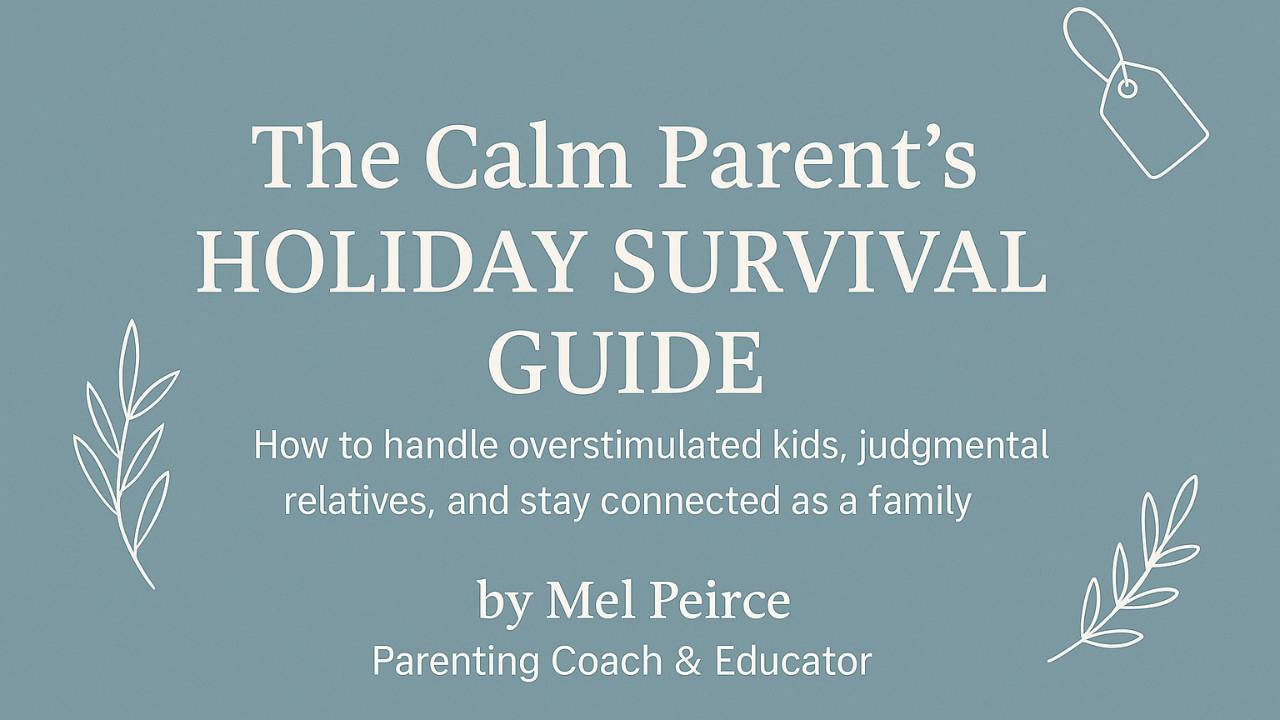Does your child have anger issues? This workshop can help!
Nov 03, 2024
Does your child have anger issues? I recently had a couple of parents reach out because their children were having anger issues at home and school. The children were hitting and biting other kids, teachers, and parents, and they were saying really mean and hurtful things. The parents were at a loss and didn’t know what to do.
As a parent, it can be both scary and embarrassing when your young child seems to be acting out with malicious intent. Many parents take it personally and see it as a reflection of their parenting, but most parents don’t know how to help children who get angry easily, especially if they’re between the ages of 2 and 6.
The first thing I do when working with new parents is explain how their child’s brain is developing and the connection between their brain and behavior.
Imagine that your child’s brain is like a house. The downstairs is the primal part of their brain, which drives their fight or flight response and is fully developed by age 1.
Their prefrontal cortex is the upstairs part of their brain and is responsible for emotional regulation, impulse control, appropriately communicating feelings, problem-solving skills, empathy, and more. It is completely under construction throughout the elementary years, undergoes a complete remodel in the teen years, and isn’t fully developed until the mid-20s.
The downstairs/upstairs concept comes from Dr. Daniel Siegel and Dr. Tina Payne Bryson in The Whole Brain Child. I use it because it’s a great visual of a child’s brain. When you walk in the front door of their “house,” the downstairs is completely finished. The light fixtures are all in, the walls are all painted, and everything is done. Then you walk over to the stairs to go to the second floor, and the stairs are plywood. All you see upstairs is the 2x4 framing and open rafters with no roof yet.
The final piece of the puzzle that helps explain your child’s behavior is the amygdala. The amygdala is the brain's emotional center, and it’s constantly on alert for danger. Any feelings of frustration, anxiety, worry, anger, shame, embarrassment, or other intense emotions (even excitement) alert the amygdala.
Whenever your child experiences anger or any of these other big feelings, the amygdala puts a baby gate on the stairs so your child can’t access their upstairs brain. They’re stuck in their downstairs primal brain and their fight or flight response. This is when our kids get angry, run away, or shut down.
All of the things that young children struggle with — anger management and frustration tolerance, the ability to tolerate transitions and control their impulses, how to express big feelings appropriately, how to be flexible when they don’t get their way, the ability to self-soothe, the ability to consider consequences as well as think about how their actions affect others, and so on… These are all upstairs brain skills that they have to develop. They are not born with them, and they all develop differently. You probably know some adults who still struggle with some of these skills!
I explain to parents that their children are not acting with malicious intent, choosing to hit or bite, or intentionally trying to be mean by saying hateful things. They just haven’t learned how to be flexible when they don’t get their way, control their impulses, or manage frustration and anger appropriately because that part of their brain isn’t fully developed yet.
One mom asked me if that meant she just had to live with her three-year-old acting out until his brain developed more, and the answer is most definitely NO!
As parents, we want to help our children learn how to manage their frustration and big feelings appropriately. I start with teaching parents about the brain/behavior connection to help them stay calmer so they can parent more effectively and model how to manage feelings appropriately during frustrating situations.
I then teach them multiple tools and strategies so they know what to do when their child gets angry and how to help their child learn to calm down.
If anger issues are a problem in your house, please join us at my upcoming free workshop! I will present my How to Parent Through BIG Feelings workshop in Saugus on Tuesday, November 12th, followed by an open Q&A where I will answer all questions about your biggest parenting challenges. Parents find this workshop so helpful, and everyone leaves with a much better understanding of their kids with multiple new tools and strategies in their parenting toolbox. Click here for more information and to sign up.
Join the Confident Parenting Community.
Receive the latest tips and tools from the Confident Parenting Toolbox to support your kids
(and yourself!) with today's challenges so your whole family can thrive.
We hate SPAM. We will never sell your information, for any reason.


